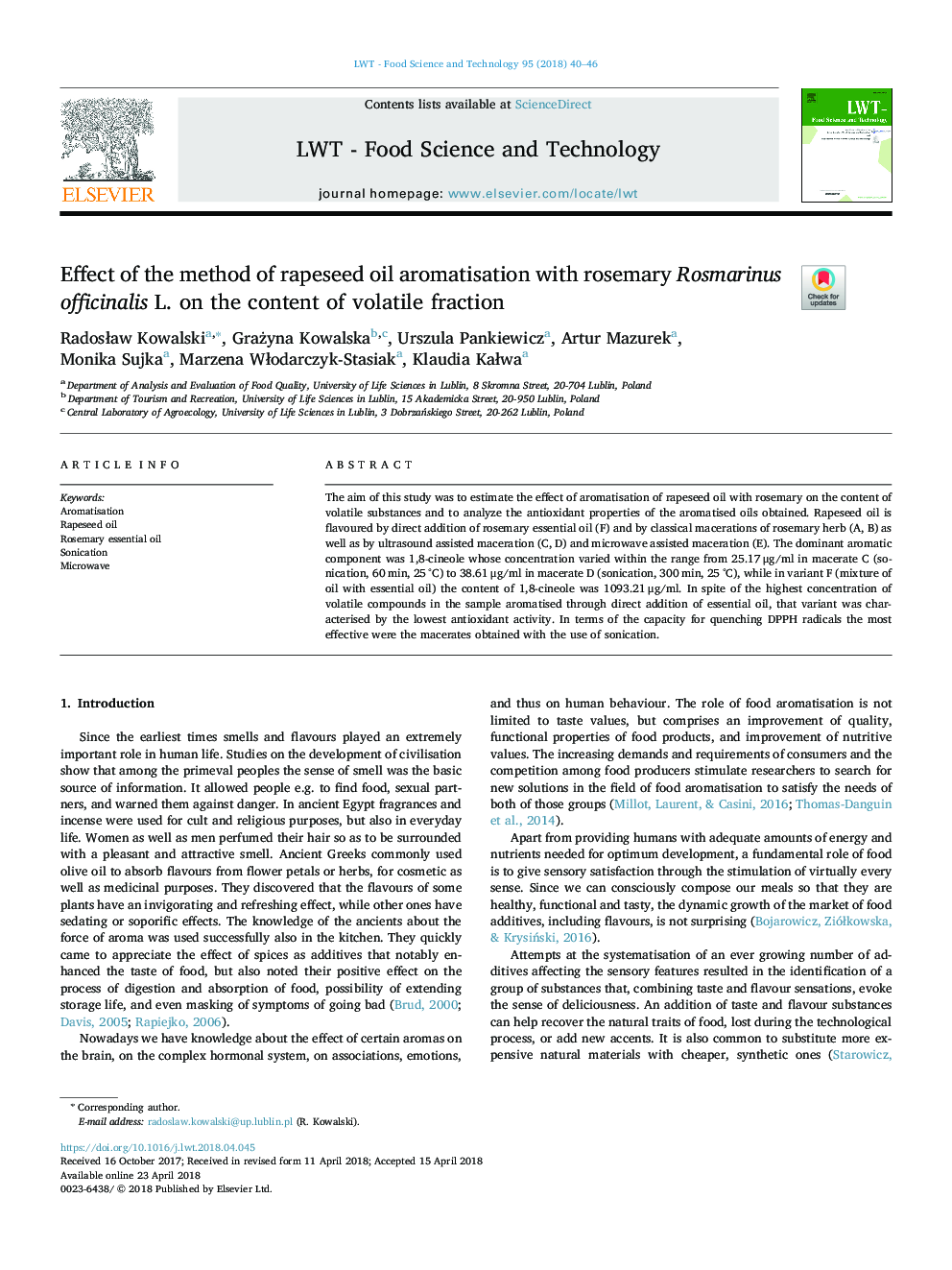| Article ID | Journal | Published Year | Pages | File Type |
|---|---|---|---|---|
| 8890812 | LWT - Food Science and Technology | 2018 | 7 Pages |
Abstract
The aim of this study was to estimate the effect of aromatisation of rapeseed oil with rosemary on the content of volatile substances and to analyze the antioxidant properties of the aromatised oils obtained. Rapeseed oil is flavoured by direct addition of rosemary essential oil (F) and by classical macerations of rosemary herb (A, B) as well as by ultrasound assisted maceration (C, D) and microwave assisted maceration (E). The dominant aromatic component was 1,8-cineole whose concentration varied within the range from 25.17â¯Î¼g/ml in macerate C (sonication, 60â¯min, 25â¯Â°C) to 38.61â¯Î¼g/ml in macerate D (sonication, 300â¯min, 25â¯Â°C), while in variant F (mixture of oil with essential oil) the content of 1,8-cineole was 1093.21â¯Î¼g/ml. In spite of the highest concentration of volatile compounds in the sample aromatised through direct addition of essential oil, that variant was characterised by the lowest antioxidant activity. In terms of the capacity for quenching DPPH radicals the most effective were the macerates obtained with the use of sonication.
Related Topics
Life Sciences
Agricultural and Biological Sciences
Food Science
Authors
RadosÅaw Kowalski, Grażyna Kowalska, Urszula Pankiewicz, Artur Mazurek, Monika Sujka, Marzena WÅodarczyk-Stasiak, Klaudia KaÅwa,
